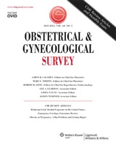
Clinical Epileptology
Scope & Guideline
Bridging gaps in epilepsy understanding and treatment.
Introduction
Aims and Scopes
- Clinical Research on Epilepsy Treatments:
The journal emphasizes rigorous clinical studies on various treatment modalities for epilepsy, including pharmacological interventions, surgical options, and novel therapies like neurostimulation. - Neuropsychology and Psychosomatic Aspects:
There is a strong focus on the neuropsychological aspects of epilepsy, including the impact of seizures on cognitive functions, mental health, and psychosomatic conditions associated with seizure disorders. - Diagnostic Innovations and Guidelines:
The journal regularly publishes updates on diagnostic techniques, including EEG advancements, imaging studies, and genetic testing, alongside clinical guidelines for managing epilepsy. - Healthcare Utilization and Patient Perspectives:
Research on healthcare systems, patient experiences, and the utilization of epilepsy care services is a consistent theme, addressing disparities and improving access to care. - Historical and Educational Contributions:
The journal also provides insights into the historical evolution of epileptology and includes educational resources aimed at training future professionals in the field.
Trending and Emerging
- Neurostimulation and Digital Therapeutics:
There is a growing trend towards exploring neurostimulation techniques and digital health solutions as therapeutic options for epilepsy, reflecting advances in technology and personalized medicine. - Genetic and Precision Medicine Approaches:
Research focusing on genetics and precision medicine is increasingly prevalent, emphasizing the importance of individualized treatment strategies based on genetic profiles and biomarkers. - Psychogenic Non-Epileptic Seizures (PNES):
The journal is seeing an increase in studies addressing psychosomatic aspects of epilepsy, particularly the diagnosis and treatment of psychogenic non-epileptic seizures, highlighting the need for integrated care. - Patient-Centric Research and Quality of Life:
There is a notable rise in research that centers on patient experiences, quality of life, and the psychosocial dimensions of living with epilepsy, underscoring the importance of holistic care. - Healthcare Disparities and Access to Care:
Recent publications are increasingly focused on understanding and addressing healthcare disparities faced by epilepsy patients, emphasizing the need for equitable access to treatment and care resources.
Declining or Waning
- Traditional Epilepsy Classification Systems:
There has been a noticeable reduction in publications focusing on traditional classification systems for epilepsy, suggesting a shift towards more nuanced and individualized approaches to diagnosis and treatment. - General Reviews of Non-Specific Treatments:
Papers that offer general reviews on non-specific or outdated treatment protocols are becoming less common, indicating a preference for more targeted and evidence-based discussions. - Basic Science Studies on Epileptogenesis:
There is a waning interest in purely basic science studies that do not translate into clinical applications, as the journal increasingly prioritizes research with direct implications for patient care. - Epidemiological Studies without Novel Insights:
Epidemiological studies that do not present new insights or advancements in understanding epilepsy trends are appearing less frequently, as the focus shifts to actionable data and innovative research.
Similar Journals

Journal of Wrist Surgery
Exploring the latest techniques in wrist surgery.Journal of Wrist Surgery is a premier journal dedicated to the field of hand and wrist surgery, published by THIEME MEDICAL PUBL INC. With its ISSN 2163-3916 and E-ISSN 2163-3924, this journal aims to provide a rigorous platform for publishing high-quality research that advances the understanding and practice of wrist surgery. Encompassing a wide range of topics from surgical techniques to clinical outcomes, the journal serves as an essential resource for surgeons, researchers, and healthcare professionals dedicated to improving patient care in this specialized area. Though the journal is not open access, it upholds a reputation for scholarly excellence, contributing significantly to its impact in the orthopedic and surgical communities. With an emphasis on innovative and evidence-based practices, the Journal of Wrist Surgery invites submissions that encompass both clinical research and case studies, ensuring that the insights shared are applicable to everyday practice.

Epilepsia Open
Unlocking knowledge, transforming lives in epilepsy.Epilepsia Open is a premier open access journal dedicated to advancing the field of neurology, particularly in the area of epilepsy research and clinical practice. Published by WILEY since 2016, this journal aims to provide a platform for high-quality, peer-reviewed research that fosters collaboration among researchers, clinicians, and educators within the global neurological community. With an impactful presence in the field, it holds a prestigious Q2 ranking in both Neurology and Clinical Neurology categories as of 2023 and has been recognized for its contributions to the understanding of epilepsy through its diverse range of articles, reviews, and clinical studies. Researchers and practitioners can benefit from the journal's open access model, which ensures that valuable findings are readily available to the public, promoting further developments in treatment and care. The journal's significant visibility is reflected in its Scopus rankings, where it ranks in the top half of peer-reviewed journals in both Neurology and Neuroscience categories. For those committed to improving the lives of those affected by epilepsy, Epilepsia Open represents a crucial resource for cutting-edge knowledge and innovative practices.

British Journal of Surgery
Innovating surgical techniques for tomorrow's challenges.The British Journal of Surgery, published by OXFORD UNIV PRESS, stands as a preeminent periodical in the field of surgery, as evidenced by its impressive impact factor and esteemed ranking of #7 out of 551 in the Scopus category of Medicine - Surgery, placing it in the 98th percentile. Since its inception in 1913, the journal has dedicated itself to disseminating cutting-edge research, innovative surgical techniques, and comprehensive meta-analyses, thereby shaping the future of surgical practice and education. With a robust commitment to academic rigor, it has consistently maintained a prestigious position in the Q1 category of surgery as of 2023, affirming its relevance in the modern medical landscape. The journal provides essential access to healthcare professionals, researchers, and students passionate about advancing surgical knowledge and improving patient outcomes. Operated from its headquarters in Oxford, United Kingdom, the British Journal of Surgery is pivotal for anyone looking to stay at the forefront of surgical advancements.

NEUROPEDIATRICS
Exploring the frontiers of children's neurological health.NEUROPEDIATRICS is a prominent academic journal published by GEORG THIEME VERLAG KG, dedicated to advancing the understanding and treatment of neurological disorders in children. Established in 1980, this journal has consistently provided a platform for innovative research and clinical practice in the fields of pediatrics and neurology, culminating in its recognition across various rankings; it holds a Q2 rating in Pediatrics, Perinatology and Child Health, and Q3 in both Medicine (miscellaneous) and Neurology (clinical) as of 2023. While NEUROPEDIATRICS is not an open access journal, it remains a crucial resource for researchers, clinicians, and students who seek cutting-edge insights and evidence-based practices in the management of pediatric neurological issues. As a result, NEUROPEDIATRICS plays an indispensable role in shaping future research directions and improving health outcomes in this vital field.

Annals of Indian Academy of Neurology
Exploring Innovations in Neurological ResearchAnnals of Indian Academy of Neurology is a premier open access journal dedicated to advancing the field of Neurology, serving as a vital resource for researchers, healthcare professionals, and students since its inception in 2006. Published by the esteemed Wolters Kluwer Medknow Publications, this journal has established itself within the academic community, boasting a Q3 quartile ranking in clinical neurology according to the 2023 category quartiles and a Scopus rank placing it in the 35th percentile among 400 comparable journals. With a focus on clinical advancements and research innovations in neurology, the journal aims to disseminate high-quality and impactful studies that address the complex challenges faced in the neurological landscape, particularly within the Indian context. The open access model ensures that the latest research is readily accessible to a global audience, thereby promoting collaboration and knowledge sharing within the neurosciences.

Surgery in Practice and Science
Bridging science and practice for enhanced surgical outcomes.Surgery in Practice and Science is a prominent academic journal published by Elsevier, focusing on the interdisciplinary fields of Otorhinolaryngology, Surgery, and Urology. With an ISSN of 2666-2620 and existing as an Open Access publication since 2020, this journal aims to facilitate widespread dissemination of vital research findings to enhance clinical practices and improve patient outcomes. Operating from the United Kingdom, this journal has established its place within the academic community, achieving a Q3 quartile ranking in 2023 across its respective categories, which reflects its commitment to quality and relevance in contemporary surgical discussions. Although the H-index is currently not specified, Surgery in Practice and Science has garnered recognition through its respective Scopus rankings, positioning it as a valuable resource for researchers, professionals, and students. With its objective of promoting knowledge exchange and innovation in surgical techniques and methodologies, this journal continues to play an essential role in its field, paving the way for future advancements in surgery and allied disciplines.

Zeitschrift fur Epileptologie
Innovative research shaping the future of epilepsy care.Zeitschrift fur Epileptologie is a vital resource in the field of neurology and pediatric healthcare, published by Springer Heidelberg. With its ISSN 1617-6782 and E-ISSN 1610-0646, the journal focuses on the latest research and clinical practices pertaining to epilepsy, catering to an audience that includes researchers, clinicians, and students. Although it currently holds a Q4 ranking in both Neurology (clinical) and Pediatrics categories, the journal's commitment to disseminating key findings and enhancing understanding in these fields positions it as an important contributor to ongoing discussions around epilepsy management and child health. The journal has published continuously from 2005 to 2022, offering both traditional and open-access viewing options that increase its accessibility to a global audience. By maintaining an emphasis on high-quality research, Zeitschrift fur Epileptologie strives to improve patient care and embrace innovations in treatment methodologies.

Epilepsy & Behavior Reports
Fostering Collaboration for a Deeper Understanding of EpilepsyEpilepsy & Behavior Reports, a distinguished journal published by ELSEVIER SCIENCE INC, specializes in the latest research and developments in the field of epilepsy and related behavioral conditions. Since its inception in 2019 as a fully Open Access journal, it has carved a niche for itself within the scientific community, providing an essential platform for researchers and clinicians focused on behavioral neuroscience and neurology. The journal's commitment to disseminating high-quality research is reflected in its current rankings within Scopus, placing it within the Q3 category for Behavioral Neuroscience and Clinical Neurology, underscoring its relevance to emerging trends in these fields. Located in the heart of New York, the journal strives to foster collaboration and innovation, making it a vital resource for academics, practitioners, and students eager to advance their understanding of epilepsy and its behavioral implications. The convergence of expertise and research in Epilepsy & Behavior Reports promises to illuminate crucial aspects of neurological health, driving forward the discourse that shapes future treatment and understanding of epilepsy.

EUROPEAN JOURNAL OF PAEDIATRIC NEUROLOGY
Advancing pediatric neurology through innovative research.European Journal of Paediatric Neurology, published by Elsevier Science Ltd, is a premier academic journal dedicated to advancing the field of paediatric neurology. With its ISSN 1090-3798 and E-ISSN 1532-2130, this journal serves as a vital resource for researchers, clinicians, and students alike, focusing on the latest findings and innovative treatments in paediatric neurological disorders. The journal has established itself as a leading publication in its field, achieving a Q1 classification in Pediatrics, Perinatology and Child Health, and holding a reputable Q2 status in Clinical Neurology as of 2023. Positioned within the top 88th percentile in Pediatrics and the 76th percentile in Clinical Neurology according to Scopus ranks, it publishes rigorous peer-reviewed articles that contribute significantly to clinical practice and research. Although not open access, the journal provides vital insights into the complexities of neurological conditions affecting the pediatric population, making it an essential tool for scholars and professionals striving to improve child health outcomes. With a publication trajectory spanning from 1997 to 2024, it continues to be at the forefront of paediatric neurological research, inspiring innovation and collaboration in the scientific community.

OBSTETRICAL & GYNECOLOGICAL SURVEY
Pioneering Research for Women's Reproductive Well-beingObstetrical & Gynecological Survey, a leading journal in the fields of obstetrics and gynecology, is published by Lippincott Williams & Wilkins. With a history dating back to 1946, this esteemed journal provides a comprehensive platform for raising awareness and fostering advances in the health and clinical practices surrounding women's reproductive health. Its current rankings highlight its significance, placing it in the Q2 category for Obstetrics and Gynecology and Q3 for Medicine (miscellaneous) in 2023, with a Scopus rank of 105 out of 209. The journal aims to deliver high-quality, peer-reviewed articles on a diverse range of topics, including clinical studies, reviews, and innovative research, making it an essential resource for researchers, practitioners, and students in the field. Though it does not currently offer open access, the journal's impactful contributions continue to shape the dialogue and advancements within the specialty.